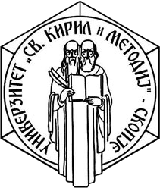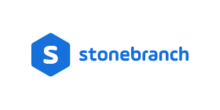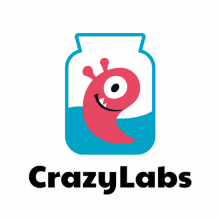| IoT agriculture system based on LoRaWAN
D Davcev, K Mitreski, S Trajkovic, V Nikolovski, N Koteli
2018 14th IEEE International Workshop on Factory Communication Systems (WFCS …
|
171 |
2018 |
| Blockchain-based distributed cloud/fog platform for IoT supply chain management
D Davchev, L Kocarev, A Carbone, V Stankovski, K Mitreski
Eighth international conference on advances in computing, electronics and …
|
61 |
2018 |
| Learning habitat models for the diatom community in Lake Prespa
D Kocev, A Naumoski, K Mitreski, S Krstić, S Džeroski
Ecological Modelling 221 (2), 330-337
|
45 |
2010 |
| Predicting chemical parameters of the water from diatom abudance in lake Prespa and its tributaries
A Naumoski, D Kocev, N Atanasova, K Mitreski, S Krstić, S Džeroski
Information Technologies in Environmental Engineering: Proceedings of the …
|
15 |
2009 |
| Multi-horizon air pollution forecasting with deep neural networks
M Arsov, E Zdravevski, P Lameski, R Corizzo, N Koteli, S Gramatikov, ...
Sensors 21 (4), 1235
|
13 |
2021 |
| Classifying diatoms into trophic state index classes with novel classification algorithm
A Naumoski, K Mitreski
Procedia Environmental Sciences 2, 1124-1138
|
13 |
2010 |
| Air quality pollution from traffic and point sources in Skopje assessed with different air pollution models
K Mitreski, M Toceva, N Koteli, L Karajanovski
Journal of Environmental Protection and Ecology 17 (3), 840-850
|
9 |
2016 |
| An ecological model of Lake Ohrid
K Mitreski, Z Koneski, D Davcev, T Naumoski, V Mitic, S Sumka, ...
Proceedings of the IASTED International Conference on Applied Modeling and …
|
8 |
1998 |
| A novel fuzzy based approach for inducing diatom habitat models and discovering diatom indicating properties
A Naumoski, G Mirceva, K Mitreski
Ecological Informatics 7 (1), 62-70
|
7 |
2012 |
| Short-term air pollution forecasting based on environmental factors and deep learning models
M Arsov, E Zdravevski, P Lameski, R Corizzo, N Koteli, K Mitreski, ...
2020 15th Conference on Computer Science and Information Systems (FedCSIS …
|
6 |
2020 |
| Modelling the impact of the hotel facilities on online hotel review score for city of Skopje
M Stojchevska, A Naumoski, K Mitreski
2018 2nd International Symposium on Multidisciplinary Studies and Innovative …
|
5 |
2018 |
| Learning habitat models for the diatoms of Lake Prespa
S Dzeroski, K Mitreski, S Krstić, A Naumoski
ETAI-2007: proceedings of abstracts of VIII National Conference with …
|
5 |
2007 |
| Pollution monitoring system for the Lake Ohrid-a planning scheme
K Mitreski, D Davcev, M Jordanoski, T Naumoski
WIT Transactions on Ecology and the Environment 20
|
5 |
1997 |
| Management and analysis of the phosphorus data in the Lake Ohrid by multimedia presentation
D Davcev, K Mitreski, V Boskovska, Z Koneski
Proceedings of the IASTED International Conference on Advanced Technology in …
|
5 |
1996 |
| IoT--Based System for Real-time Monitoring and Insect Detection in Vineyards
S Stevanoska, D Davcev, EM Jovanovska, K Mitreski
Proceedings of the 18th ACM Symposium on Mobility Management and Wireless …
|
4 |
2020 |
| Influence of algebraic t-norm on different indiscernibility relationships in fuzzy-rough rule induction algorithms
A Naumoski, G Mirceva, K Mitreski
ICT Innovations 2017: Data-Driven Innovation. 9th International Conference …
|
4 |
2017 |
| Diatom classification with novel bell based classification algorithm
A Naumoski, K Mitreski
ICT Innovations 2010: Second International Conference, ICT Innovations 2010 …
|
4 |
2011 |
| Web-based pollution monitoring system for the Lake Ohrid
K Mitreski, D Davcev, Z Koneski
WIT Transactions on Ecology and the Environment 43
|
4 |
2000 |
| Publishing Skopje Air Quality Data as Linked Data
K Mishev, A Kjosevski, N Kalemdzhievski, N Koteli, M Jovanovik, ...
Proc. of the 12th International Conference on Informatics and Information …
|
3 |
2015 |
| Fuzzy models with GIS for water quality diatom-indicator classification
A Naumoski, G Mirceva, K Mitreski
2011 Eighth International Conference on Fuzzy Systems and Knowledge …
|
3 |
2011 |
| Web-based information system for pollution monitoring of lake ohrid
K Mitreski, Z Koneski, N Naumov, D Davcev
Water, Air and Soil Pollution: Focus 4, 189-199
|
3 |
2004 |
| Mathematical model for the available phosphorus, phytoplankton and zooplankton in the Lake Ohrid
K Mitreski, Z Koneski, D Davchev, T Naumoski
WIT Transactions on Ecology and the Environment
|
3 |
1998 |
| Air quality impact of traffic and point sources in Skopje assessed with dispersion models
M Toceva, N Koteli, K Mitreski
Faculty of Computer Science and Engineering, Ss. Cyril and Methodius …
|
2 |
2013 |
| Ambient air quality in the Republic of Macedonia from the perspective of EU directive
R Bojkovska, K Mitreski
Proceedings of the ITI 2012 34th International Conference on Information …
|
2 |
2012 |
| Data analysis of spatio-temporal sensor data as a contribution to the model analysis for water resources
S Veleva, K Mitreski
BALWOIS 2010 (Ohrid, Macedonia, May 25-29)
|
2 |
2010 |
| Influence of climate change on diatoms diversity indices in Lake Prespa
A Naumoski, K Mitreski
Journal of E-Analytical-Energy and Climate Change-Southeast Europe in Focus
|
2 |
2009 |
| Dynamic model and estimation of the future eutrophication for the Lake Prespa
K Mitreski, A Naumoski
Proceedings of the 2nd IASME/WSEAS international conference on Energy and …
|
2 |
2007 |
| 3-D Visualization and analysis of the pollution sources in the Lake Ohrid
K Mitreski, D Davcev
Proceedings of the 25th International Conference on Information Technology …
|
2 |
2003 |
| Web-based Mobile Service for Pollution Monitoring Systems
K Mitreski, S Stevkovski
Institute of Informatics, Faculty of Natural Sciences and Mathematics, Ss …
|
2 |
2003 |
| Implication of Hamacher T-norm on Two Fuzzy-Rough Rule Induction Algorithms
A Naumoski, G Mirceva, K Mitreski
2022 45th Jubilee International Convention on Information, Communication and …
|
1 |
2022 |
| Novel t-norm for fuzzy-rough rule induction algorithm and its influence
A Naumoski, G Mirceva, K Mitreski
ICT Innovations 2021. Digital Transformation: 13th International Conference …
|
1 |
2022 |
| Evaluation of diatoms biodiversity models by applying different discretization on the class attribute
A Naumoski, G Mirceva, K Mitreski
2020 43rd International Convention on Information, Communication and …
|
1 |
2020 |
| Clustering Tree Algorithm for Biodiversity Modeling of Diatoms
A Naumoski, G Mirceva, K Mitreski
|
1 |
2020 |
| Experimental Evaluation of Different Membership Functions on Weighted Pattern Trees for Diatom Modelling
A Naumoski, G Mirceva, K Mitreski
2018 14th International Conference on Natural Computation, Fuzzy Systems and …
|
1 |
2018 |
| Analyzing the level of high tropospherc ozone during the summer 2014 and 2015 in Skopje, R. Macedonia
B Stoimenovski, K Mitreski, A Naumoski, D Serafimovski
Trans Motauto World
|
1 |
2017 |
| Mobile Health Based System for Managing and Maintaining Health Data in Classroom: Case Study
D Serafimovski, K Mitreski, Z Zdravev
Tem Journal
|
1 |
2017 |
| ANALYZING THE LEVEL OF HIGH TROPOSPHERC OZONE DURING THE SUMMER 2013 IN SKOPJE, R. MACEDONIA
B Stoimenovski, K Mitreski, A Naumoski, D Davchev
V International Conference „Ecology of Urban Areas 2016 “
|
1 |
2016 |
| Analysis of the potential of cross-platform mobile applications as data management tools in medical purposes
D Serafimovski, A Krstev, K Mitreski
|
1 |
2016 |
| Organization of the Zletovo’s Pb-Zn deposit mineral and anthroghene access databases, Republic of Macedonia
D Serafimovski, V Gicev, A Krstev, K Mitreski
|
1 |
2016 |
| A mobile environmental air quality information system as a support for m-health
E Mitreska, D Davchev, K Mitreski
Springer, Cham
|
1 |
2013 |
| Pattern tree spatial models for ecological classification
A Naumoski, K Mitreski
Faculty of Computer Science and Engineering, Ss. Cyril and Methodius …
|
1 |
2012 |
| Novel Inverse Sigmoid Fuzzy Approach for Water Quality Diatom Classification
A Naumoski, S Krstić, K Mitreski
ICT Innovations 2011, 207-217
|
1 |
2012 |
| Indoor Air Quality measurement in server and battery rooms in ICT Companies in Macedonia
N Koteli, M Ivanova, K Mitreski
Faculty of Computer Science and Engineering, Ss. Cyril and Methodius …
|
1 |
2012 |
| Diatoms Classification with Weighted Averaging Fuzzy Operators for Eutrophication Prevention.
A Naumoski, K Mitreski, P Golinska
ITEE, 49-59
|
1 |
2011 |
| 3-D Visualization And Standardization Of GIS Elements For Pollution Monitoring Of Water Resources
K Mitreski, S Stevkovski, D Davchev
BALWOIS, Ohrid
|
1 |
2004 |
| Naïve Bayes technique for diatoms classification with discretised input
A Naumoski, K Mitreski
ICT Innovations 2010 Web Proceedings ISSN 7288
|
1 |
1857 |
| Integrated IoT System for Prediction of Diseases in the Vineyards
EM Jovanovska, I Chorbev, D Davcev, K Mitreski
2022 International Conference on Electrical, Computer, Communications and …
|
|
2022 |
| Influence of the Yu T-norm on Vaguely Quantified Rough Set Measure Algorithm Accuracy
A Naumoski, G Mirceva, K Mitreski
2022 International Conference on Electrical, Computer, Communications and …
|
|
2022 |
| Analyzing and visualisation of indoor airpollution
ME Jovanovska, M Bozinova, K Mitreski
Science. Business. Society. 5 (1), 3-6
|
|
2020 |
| Ski Slopes Digitalization and Rating Analysis of Ski Resorts in Mavrovo and Popova Shapka
A Naumoski, G Mircheva, K Mitreski
2019 3rd International Symposium on Multidisciplinary Studies and Innovative …
|
|
2019 |
| Diatom Ecological Modelling with Weighted Pattern Tree Algorithm by Using Polygonal and Gaussian Membership Functions
A Naumoski, G Mirceva, K Mitreski
ICT Innovations 2019. Big Data Processing and Mining: 11th International …
|
|
2019 |
| Environmental air quality monitoring system as a support for precision agriculture
D Davchev, K Mitreski
Science. Business. Society.
|
|
2019 |
| Evaluation of Yager Families of Aggregation Operators in Discovering the Diatoms Indicating Properties
A Naumoski, G Mirceva, K Mitreski
2018 2nd International Symposium on Multidisciplinary Studies and Innovative …
|
|
2018 |
| The access database for the Zletovo mine, Republic of Macedonia
G Tasev, D Serafimovski, K Mitreski
18th International Multidisciplinary Scientific GeoConference SGEM 2018
|
|
2018 |
| Learning diatom ecological models with fuzzy order data mining algorithm
A Naumoski, G Mirceva, K Trivodaliev, K Mitreski
2018 41st International Convention on Information and Communication …
|
|
2018 |
| EU Directive 2008/50/EC on Ambient Air Quality and Cleaner Air for Europe in Context of the Republic of Macedonia
I Rumenov, M Toceva, K Mitreski
Faculty of Computer Science and Engineering, Skopje, Macedonia Ss. Cyril and …
|
|
2018 |
| Metric influence evaluation for multi-target rule induction algorithm on life sciences datasets
A Naumoski, G Mirceva, K Mitreski
|
|
2018 |
| INFLUENCE OF RANDOM NUMBER GENERATORS IN AIR POLLUTION MODEL SAMPLING
G Vrglevski, K Mitreski, A Naumoski, SG Zajkova
Mathematical Modeling 2 (1), 17-20
|
|
2018 |
| Modelling the relationship between saturated oxygen and distoms ‘abundance using weigthed pattern trees with algebraic operators
A Naumoski, G Mirceva, K Mitreski
Mathematical Modeling 2 (4), 170-172
|
|
2018 |
| Information System for Trust Food Supply Management
D Davchev, L Kocarev, K Mitreski, M Florea, A Carbone, V Stankovski
|
|
2017 |
| GIS Digitalization of the Infrastructure of Public Buildings: A Case Study of the" Boris Trajkovski" Sports Center"
A Angjelkoski, A Naumoski, G Mirceva, K Mitreski
Faculty of Computer Science and Engineering, Ss. Cyril and Methodius …
|
|
2017 |
| NOISE POLLUTION MODELLING AND VISUALISATION–THE CASE STUDY FOR THE CITY OF SKOPJE
V Poposki, K Mitreski, D Davchev, A Naumoski
Science. Business. Society.
|
|
2016 |
| GIS Flood Prediction Models of “Kriva Reka” River
D Georgievski, K Mitreski, A Naumoski, D Davcev
ICT Innovations 2015: Emerging Technologies for Better Living 7, 59-67
|
|
2016 |
| Publishing Skopje Air Quality Data as Linked Data
M Jovanovik, K Mishev, A Kjosevski, N Kalemdzhievski, N Koteli, ...
Faculty of Computer Science and Engineering, Skopje
|
|
2015 |
| Mineral and anthroghene access databases organization for Alshar polymetallic deposit and waste dump, Republic of Macedonia
D Serafimovski, V Gicev, K Mitreski
15th International Multidisciplinary Scientific Geoconference SGEM 2015 1 …
|
|
2015 |
| Two Access databases organization for Sasa lead-zinc deposit and tailings, Republic of Macedonia
D Serafimovski, V Gicev, K Mitreski
International Multidisciplinary Scientific GeoConference (SGEM 14)
|
|
2014 |
| Connecting air mobile and desktop applications with social networks
D Serafimovski, K Mitreski
International Multidisciplinary Scientific GeoConference (SGEM 14) 1 (1), 97-104
|
|
2014 |
| TROPHIC DIATOM CLASSIFICATION USING NAÏVE BAYES
A Naumoski, K Mitreski
|
|
2013 |
| Novel fuzzy operator for classification of diatoms in ecological water quality classes
A Naumoski, K Mitreski
|
|
2013 |
| Trophic Diatom Classification Using Naгџve Bayes
A Naumovski, K Mitreski
Faculty of Computer Science and Engineering, Ss. Cyril and Methodius …
|
|
2013 |
| Diatom Indicating Property Discovery with Rule Induction Algorithm
A Naumoski, K Mitreski
ICT Innovations 2012: Secure and Intelligent Systems, 225-234
|
|
2013 |
| A novel fuzzy based approach simple sequentially rejective multiple for inducing diatom habitat models and discovering diatom indicating properties
A Naumoski, G Mirceva, K Mitreski
Ecological Informatics 7 (1), 62
|
|
2012 |
| Novel algorithm for diatom classification in Lake Prespa using log-normal distribution
A Naumoski, K Mitreski
Ecohydrology & Hydrobiology 11 (1-2), 23-34
|
|
2011 |
| Simulated PM10 Particles in 3 location in Skopje using HYSPLIT model
M Ivanova, K Mitreski
|
|
2011 |
| Algorithm with Evenly Distributed Gaussian Function for Diatom Classification
A Naumoski, K Mitreski
Institute of Informatics, Faculty of Natural Sciences and Mathematics, Ss …
|
|
2010 |
| Rule Induction of Physical-Chemical Water Property from Diatoms Community
A Naumoski, K Mitreski
ICT Innovations 2009, 207-216
|
|
2010 |
| Rule inducted models for classifying water quality using diatoms as bio-indicators
A Naumoski, K Mitreski, D Davcev
2009 Second International Conference on Environmental and Computer Science …
|
|
2009 |
| Data Management for the Water Monitoring System of Lake Prespa
S Veleva, K Mitreski
2009 Second International Conference on Environmental and Computer Science …
|
|
2009 |
| Dynamic phosphorus expert system with QoS support algorithms
T Shuminoski, A Naumoski, Z Naumoski, T Janevski, K Mitreski
|
|
2009 |
| Web-based mobile service for measuring parameters and estimating eutrophication of the Lake Prespa
A Naumoski, V Trajkovikj, K Mitreski
|
|
2008 |
| Mathematical model for the available phosphorus, phytoplankton and zooplankton
K Mitreski, Z Koneski, D Davcev, T Naumoski
Development and Application of Computer Techniques to Environmental Studies, 209
|
|
1998 |
| WIT Transactions on Ecology and the Environment
K Mitreski, D Davchev, M Jordanoski, T Naumoski
WIT Transactions on Ecology and the Environment
|
|
1997 |
| Predicting chemical parameters of the water from diatom abudance in lake Prespa and its
A Naumoski, D Kocev, N Atanasova, K Mitreski
|
|
|
| Multi-target Modelling of Metal Influence on Diatom Bio-diversity–Lake Prespa case study
A Naumoski, G Mirceva, K Mitreski
|
|
|
| Learning Habitat Models for the
D Kocev, A Naumoski, K Mitreski, S Krstić, S Džeroski
|
|
|
| Flood Inundation Mapping Using Geographic Information Systems
I Donevska, K Mitreski
|
|
|
| PREDICTING CHEMICAL PARAMETERES OF WATER QUALITY FROM DIATOMS ABUDANCE IN LAKE PRESPA AND ITS TRIBUTARIES
A Naumoski, D Kocev, N Atanasova, K Mitreski, S Krtić, S Džeroski
|
|
|
| ONLINE OPERATIONAL MONITORING AND TSI ESTIMATION SYSTEM OF LAKES
E Mitreska, K Mitreski
|
|
|
| Ackovska, Nevena 91 Anchev, Nenad 71
B Atanasovski, V Bakeva, E Bedalli, D Boshnakoska, L Bozinovska, ...
ICT Innovations 2012, 383
|
|
|
| Ecological management system with QoS support and GIS for the Lake Prespa
A Naumoski, T Shuminoski, M Kirov, T Janevski, K Mitreski
|
|
|
| Modelling the relationship between diatom abundances and physico-chemical parameteres in Lake Prespa
A Naumoski, D Kocev, N Atanasova, K Mitreski, S Krstić, S Džeroski
Methodology 88, 89
|
|
|
| PREDICTING CHEMICAL PARAMETERES OF THE WATER FROM DIATOM ABUNDANCE IN LAKE PRESPA AND ITS TRIBUTARIES
A Naumoski, D Kocev, N Atanasova, K Mitreski, S Krstić, S Džeroski
|






